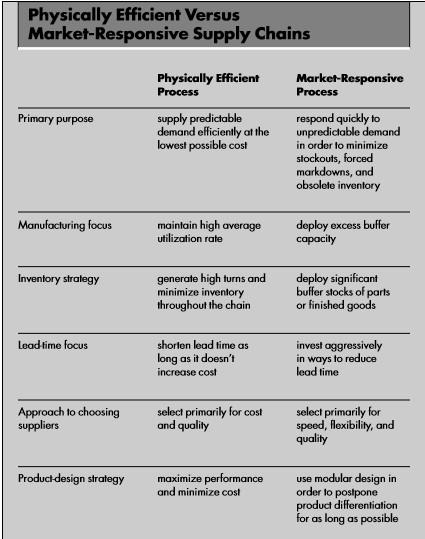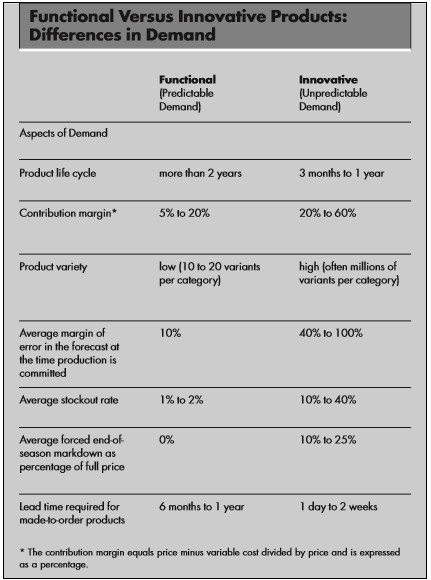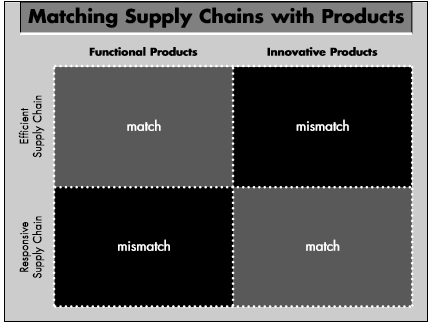If you follow this blog, then you likely have noticed that we are passionate about strategic business planning. The first question we ask new clients is: What is the true purpose of your business? A business owner concerned about their strategic business plan should be able to answer this question easily.
Today, I would like to discuss another important question related to strategic business planning, often neglected by business owners: What is the right supply chain strategy for your product?
You might be thinking, “Well, I can see why this question is forgotten by business owners… I don’t even know what a supply chain is!”. We’re going to break it down for you and demonstrate its importance as a critical aspect of a strategic business plan.
The American Production and Inventory Control Society (APICS) defines supply chain as:
A system of organizations, people, technologies, activities, information and resources involved in moving materials, products and services all the way through the manufacturing process, from the original supplier of materials supplier to the end customer.
(For more information about this topic, I recommend this post.)
We can also understand the supply chain management as a strategic vision of logistics management.
Twenty years ago, Marshall Fisher published the most important article about supply chain strategy entitled “What Is the Right Supply Chain for Your Product?”.
Although written two decades ago, this article remains to be the primary source to learn the basics of a supply chain strategy. We’re going to summarize the main principles of this work, but we do, however, recommend reading the original article for a more in-depth understanding.
Fisher introduces two different – and antagonistic – strategies for supply chain: Physically Efficient and Market-Responsive Supply Chains.
A “Physically Efficient” supply chain is extremely concerned about meeting a predictable market demand for the lowest costs possible. For example, a business that uses this strategy can only attempt to shorten the lead time, as long as it does not increase costs.
On the other hand, the goal of the “Market-Responsive” strategy is responding quickly to unpredictable demand levels; even it means higher costs.
Detailed below are the main points of each strategy.

Now, returning to the primary question: What is the right strategy for my business supply chain?
There isn’t a simple answer to this question. The answer depends on another aspect of your business: The nature of the demand for your products.
Using this approach, the author offers two categories of products: Functional and Innovative products. Functional products are those products which have a predictable demand, a long life cycle and low variety, like Campbell’s soup, for example. Innovative products are just the opposite: They have an unpredictable demand, a short life cycle and a vast range of customization, such as the fashion industry.

Now we can answer the question of the right supply chain strategy.
The key to the right choice is matching the right strategy with the right nature of the product. Therefore, it is strategic to choose a Physically Efficient supply chain for Functional products. (Consider, for example, there is no need for Campbell’s to change their products every three months.)
However, the final cost is an essential element of the purchase decision-making process (when the customer is choosing from different soup offered in the market).
The opposite situation is the marriage between a Market-Responsive strategy and Innovative products. Customers in the fashion industry are willing to pay more to purchase the new collection; therefore, the fashion market must offer new products, all the time.
 Like any strategic question; “What is the right supply chain for my business?” isn’t a simple question to answer. The right choice will undoubtedly depend on the unique aspects of your business. Please reach out to us if we can help you: vinicius@thebusinesstherapist.com
Like any strategic question; “What is the right supply chain for my business?” isn’t a simple question to answer. The right choice will undoubtedly depend on the unique aspects of your business. Please reach out to us if we can help you: vinicius@thebusinesstherapist.com


